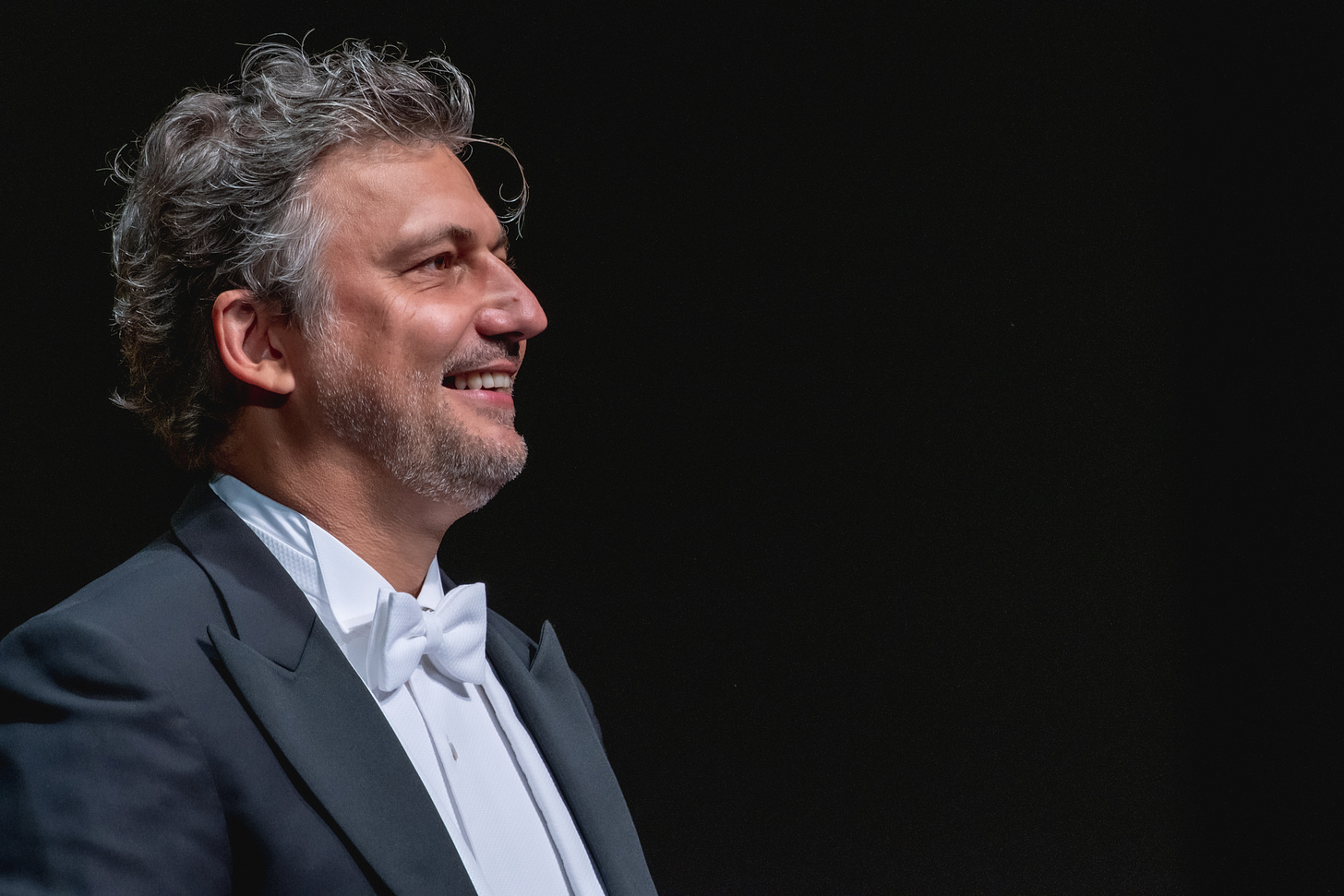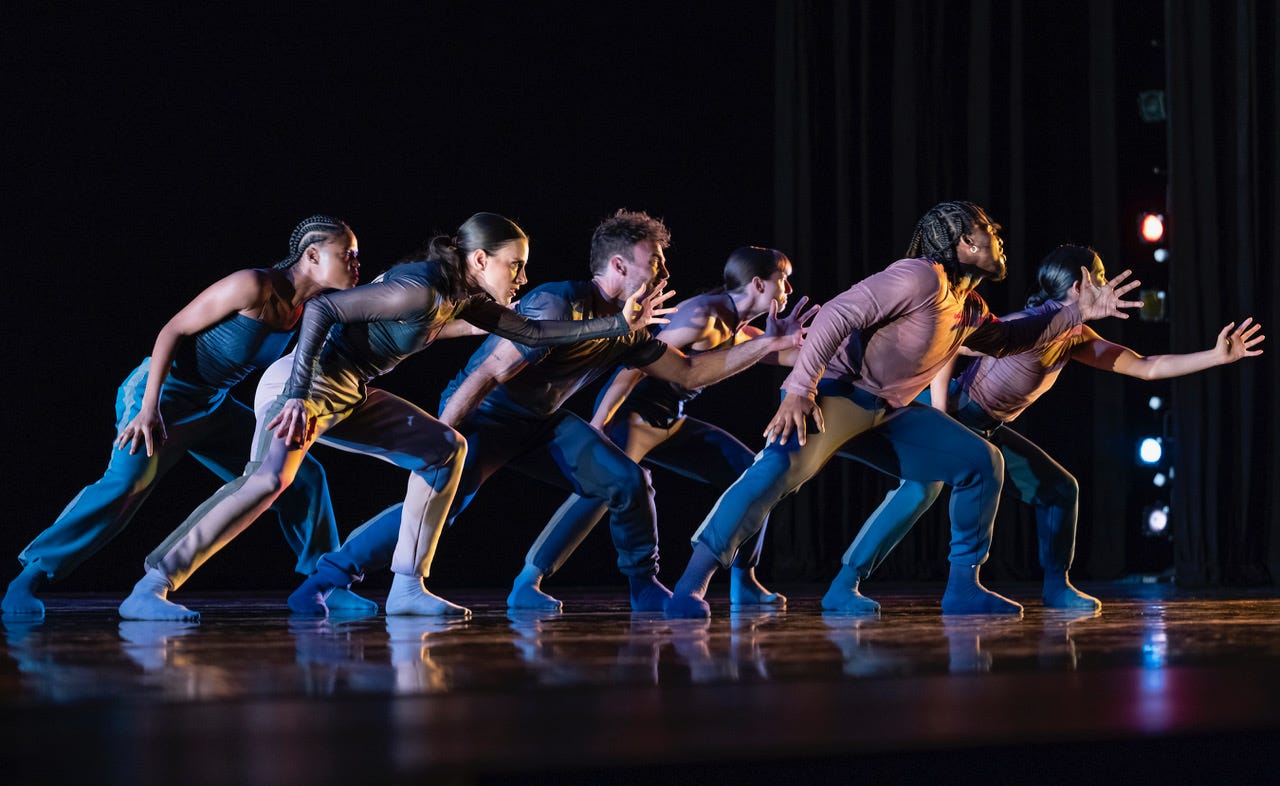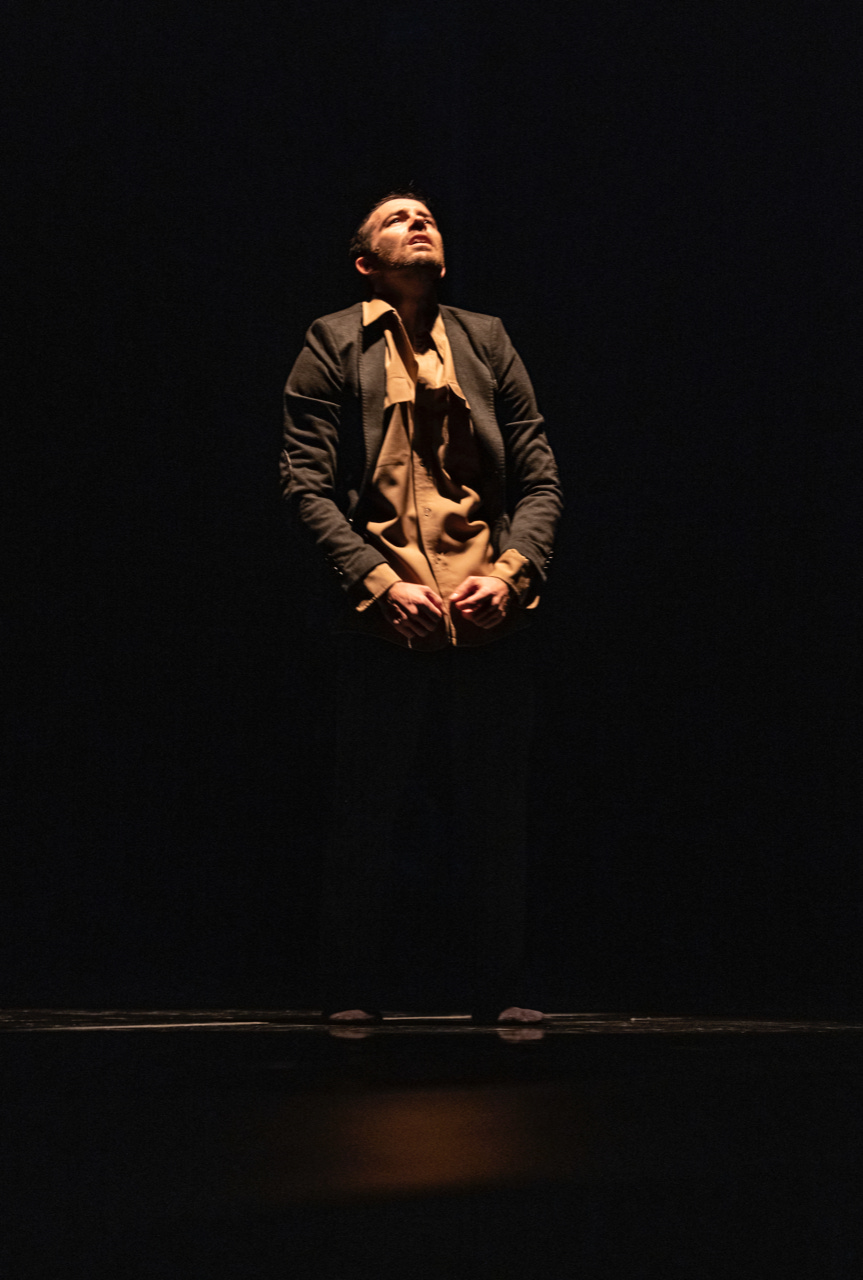Open Season: Disney Hall, Dudamel, A Wagner Opera, A Famous Tenor, Even James Brown Dancers
And so it ends -- with a bang, not a whimper. Yes! All the concert venues opening up on cue. Seat-grabbers filling spaces to the walls. Music played live. Appetites at the ready. Hunger rewarded in a glorious, city-wide feast after 19 months of pandemic fasting.
Everywhere in Los Angeles the hordes rushed in -- vaxxed, masked and agreeable to wearing those face coverings, even throughout LA Opera’s four-hour-plus marathon of Wagner’s “Tännhauser” at the Music Center Pavilion.
And why not? Did anything ever sound more enlivening? Not if you were at a performance of the Bayreuth master’s magnum opus, with James Conlon’s resplendent orchestra sweeping away any leftover brain cobwebs. The whole roaring overture, those massed strings ringing out from the mountain-top and all that followed, was transporting.
True, the production came as a re-vamp of the 2007 Ian Judge/Gottfried Pilz epic -- and a reminder of that litany of stagings done in brothel red, then turning black and white to depict an empire’s elegant sophistication. And although current director Louisa Muller has toned down the cartoonish eroticism of Venusberg -- that shadowy lust-land where assorted denizens go through choreographer Aszure Barton’s sexual slitherings -- the vulgar, snake-pit floor enactments in no way comport with the high-toned orchestral exultations.
Next time around, I’d like to see a depiction of something less literal and more compelling than this woefully unimaginative opening scene. Especially since Wagner’s 19th century morality thesis took seriously his libidinous conflict between the profane and the sacred.
It’s best to close your eyes and just listen -- your ears tell you everything. So, too, the cast of singers. Easy compensation there.
In the title role Issachah Savage unfurled a mellifluous tenor, not quite heroic enough to cut through a steel door, but an alluring one that hit the pleasing center of notes with phrasing that defined his musicality.
So now that black lives matter (irony intended) must we not wonder where he, and these other terrific non-white talents have been hiding -- though LA Opera basso Morris Robinson, he of the cavernous, stentorian voice, is here again, this time as an imposing, well-suited Hermann.
Among the others were Russian mezzo Yulia Matochkina, an overdone Venus dripping with red-light-district-tags, Lucas Meachem, a feisty competitor of a Wolfram, and the standout Sara Jakubiak, an Elizabeth, who sang and looked and acted like the modern Wagnerian heroine of anyone’s dreams, an ideal -- aside from a few wayward fortissimos.
Other voices elsewhere gave us the celebrated German tenor Jonas Kaufmann, making the rounds of American cities and landing here at The Broad Stage. He, too, proved that an artist’s drive to perform live is as powerful as an audience’s eagerness to be there in person. So the recital, an astutely put together affair -- with the singer’s long-time unimpeachable pianist, Helmut Deutsch -- was a love-in.
This time, though, I did not sit next to the woman who, at Kaufmann’s previous recital, drove six hours from Modesta to hear the heartthrob (now a bit aged from his staggeringly handsome former self).
But he gave the full measure: a night of Lieder, of art songs in German, the first half by rarely-heard Liszt (from their album) -- of course including the best-known tunes -- and then a virtual hit-parade of classical themes with lyrics. Dvorak’s “Songs My Mother Taught Me,” Tchaikovsky’s “None but the Lonely Heart.” The Brahms “Lullabye” -- remember your mother soothing you to sleep as she sang it? -- each stanza rendered more affectingly, more softly than the one before.
Kaufmann’s voice, especially in this resonant space, could still produce whatever he commanded, that is, the whole spectrum of vocal modes -- the heroic, ringing brilliance, the mask tones, the head tones -- even though some of his soft extended notes lost sustaining power.
And if there was not always the deepest poetry plumbed throughout, he did inhabit the songs -- the angry ones, the tender ones, the sorrowful ones, the joyous ones -- as any Lied artist of worth must. Finally came many encores, but not without “Wien, Wien, nur du allein” and “Dein ist mein ganzes Herz” sung mit schlag, of course.
So did Gustavo Dudamel, with his LA Philharmonic, jump into the spirit for their season opener at Disney Hall. We can all marvel at this marriage between the band and its baton-meister -- more so than ever. Verve, excitement, full-on connection, forward push, big splashes of intoxicating sound were all there, alternating with degrees of inward lyricism.
And that’s what eager audiences heard throughout a program of beloved 20th century music that also ventured, as Kaufmann did, into the German masters. Schoenberg’s “Verklärte Nacht” soared with desperate longing, even if its splintering high strings did not stretch to the near-dissonance achieved in some other performances. Similarly, Strauss’s “Death and Transfiguration” achieved its drama without that last strain of attenuation the composer highlighted.
A stellar account of what he must have ideally imagined in his “Four Last Songs” came from Golda Schultz. These revered pieces, sung by so many major artists, rarely find this soprano’s vocal impact. She has the technique to launch those vaulting octave leaps with heavenly ease and naturalness. It’s so very rare to hear this that your ears lock in the sound. Except for the fourth song, in a lower register, which went out of range, seeming underdone.
Still, as was the case throughout the program, the orchestral pacing lacked the requisite moments of lingering in long-breathed space.
But pacing matters did not concern Body Traffic, the outstanding contemporary local dance troupe that just returned to its most welcoming venue, the Wallis with a concise, well-executed program.
It opened with Micaela Taylor’s “Snap,” a rocking, riveting, James Brown-powered nugget of magnetism that whisked me unfailingly into its staccato gyrations and split-second accents. As an interior dream there was Ethan Colan’s “Recurrence,” followed by Hoffesh Shecter’s darkly European “Dust,” a study in Weltzschmerz brilliantly enacted by the dramatic dancer, Guzman Rosado.
As a signature coda, there was Alejandro Cerrudo’s “PACOPEPEPLUTO.” And with this miraculous one-man romp that seems to laugh along with Dean Martin’s albums of undiminished good-times, the curtain rang down on yet another smartly produced show by this terrific company.
The season, unlike what we’ve witnessed for nearly two years, rolls merrily along. Hurray for that!






